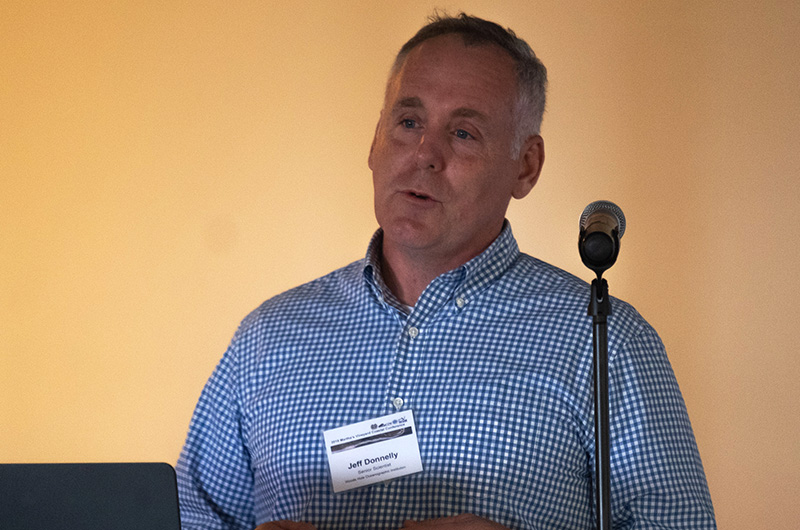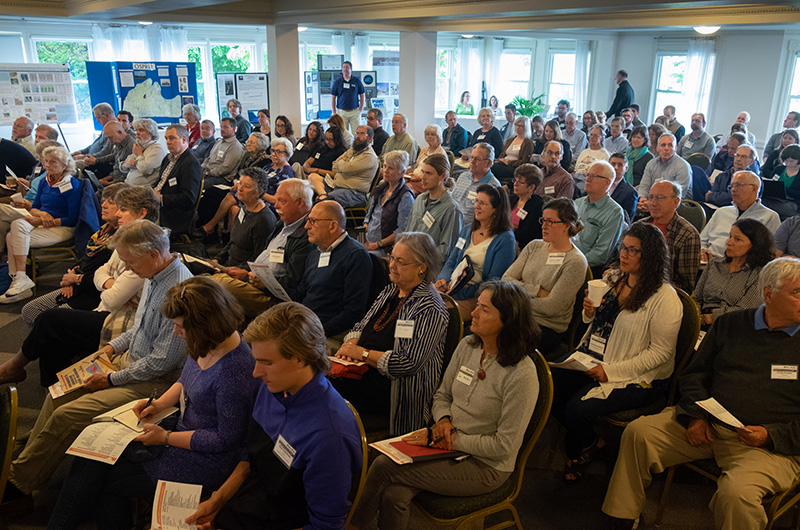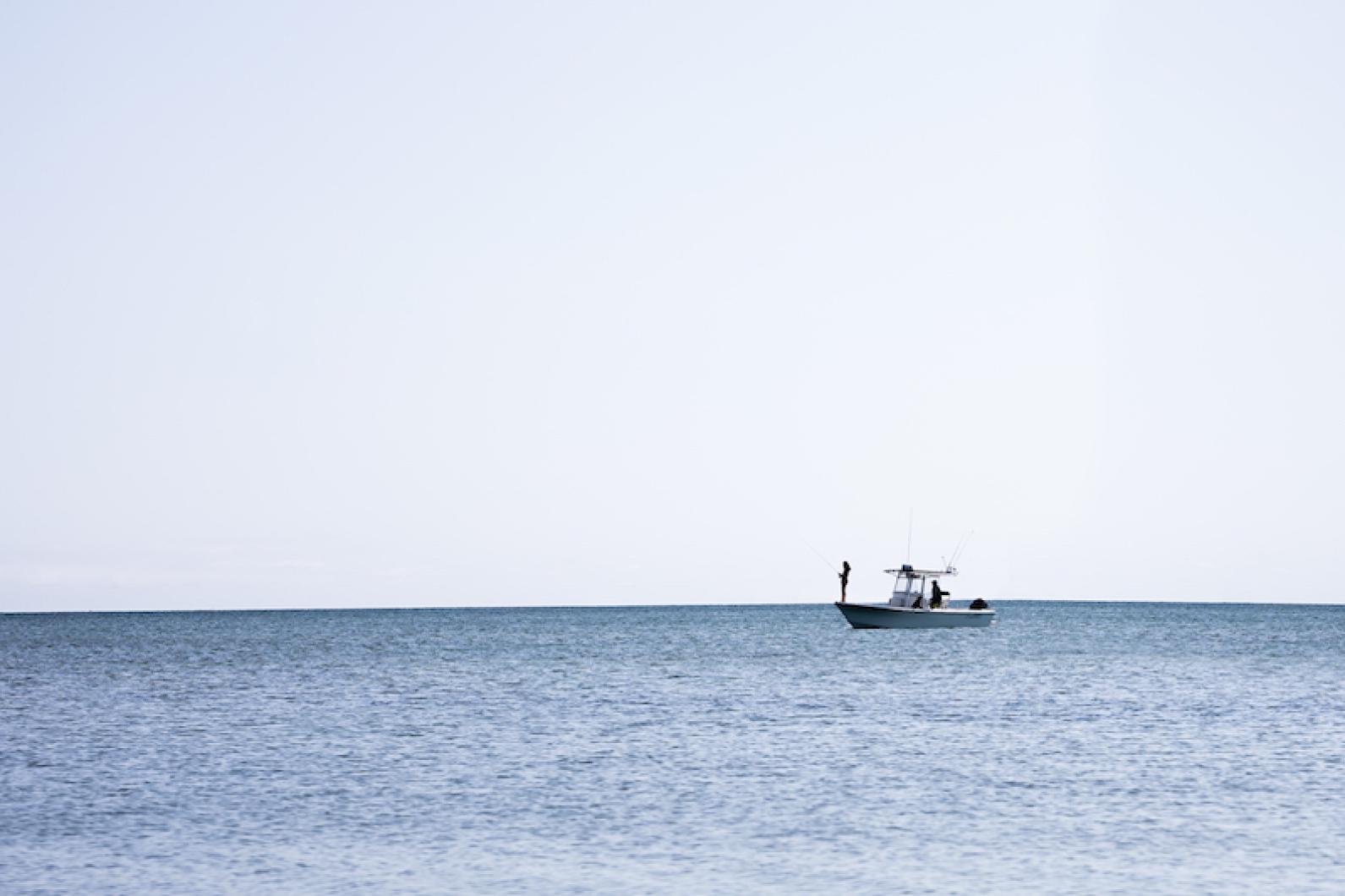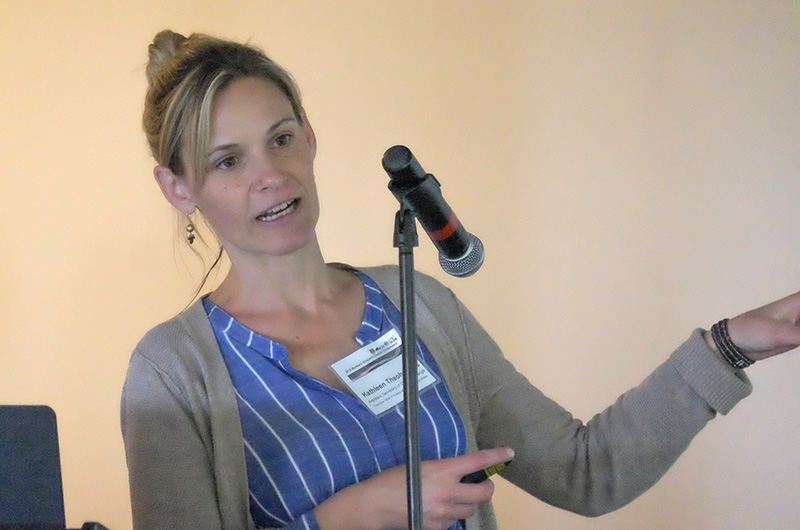Climate change is happening now and the Vineyard is on the front lines. This was the message at the third Martha’s Vineyard Coastal Conference held last Wednesday at the Harbor View Hotel in Edgartown.

More than 100 scientists, environmental representatives, town officials and interested residents attended.
Sea level rise, coastal erosion and storms on the increase were all topics for discussion throughout the daylong conference.
Keynote speaker Jeff Donnelly, a senior scientist at the Woods Hole Oceanographic Institution, said the rising intensity and frequency of hurricanes is already endangering coastal communities such as the Vineyard.
“The sea level is currently rising at a rate not seen in at least 6,000 years,” he told the crowd. “The negative impacts of future hurricane activity will be greatly exacerbated by continuing sea level rise and coastal population growth.”
Held every two years, the conference is sponsored by the state Coastal Zone Management office and the Woods Hole Sea Grant program, with assistance from Barnstable County and the town of Oak Bluffs.
“The goal is to get people on the Island to network, learn about new research and learn about ongoing management issues,” said Steve McKenna, Cape and Islands regional coordinator for CZM.
But while some research and environmental projects forge ahead with the help of town and private funds, such as the recent one at Squibnocket Beach in Chilmark, others struggle to attract the attention and money needed to move past the idea stage.
The Massachusetts Vulnerability Preparedness (MVP) Program aims to change that by offering substantial planning and action grants of $400,000 and up to towns for climate change preparedness and projects. Begun last year, the program is run out of the state Executive Office of Energy and Environmental Affairs. Kathleen Theoharides, assistant secretary of climate change for Massachusetts, outlined the program and how Island towns can apply.
West Tisbury and Chilmark workshopped the program earlier this month after receiving an MVP grant. Oak Bluffs was recently accepted into the program, and Edgartown and Vineyard Haven have applied.
“The goal of the program is to help communities engage with climate change impacts and hazards,” Ms. Theoharides said. “It sets communities on a course toward action.”

Peter Flinker of Dodson and Flinker Inc., a landscape architecture company in Northampton hired by Chilmark and West Tisbury to consult on the MVP process, echoed the importance of towns developing resilience strategies. He suggested towns work to find ways to enhance transportation infrastructure, reduce flood and stormwater impacts and consider public health outcomes from the warming climate.
“Pretty soon we’ll have a mid-Atlantic climate, and then be like Charleston [South Carolina],” he said.
Chilmark selectman Warren Doty flagged the concerns in his town.
“How we can plan for sea level rise in Menemsha,” Mr. Doty said, noting the potential for flooding in the harbor and on the dockfronts.
A panel discussion moderated by Oak Bluffs conservation agent Liz Durkee closed the conference with a sober discussion about the future of the Island.
Martha’s Vineyard Commission executive director Adam Turner spoke about the importance of long-term collaboration among towns, environmental groups and citizens through programs such as the MVP in planning for the future.
Outside the hotel, tourists strolled down to the Edgartown Lighthouse on a warm late spring day, snapping pictures of the outer harbor scene. Inside, Mr. Turner warned that Island towns must take immediate action.
“You have to do it now because it’s already happening,” he said. “If you don’t think it is, then you aren’t paying attention.”









Comments (9)
Comments
Comment policy »